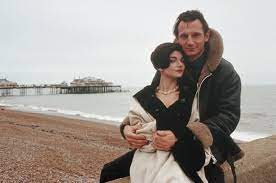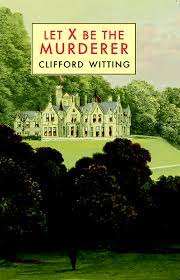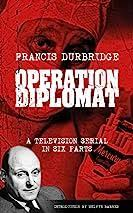I love second hand bookshops and one of the many pleasures of my recent trip to Shetland was the chance to visit a lovely new second hand bookshop on the island. It's really heartening to see people moving into this fascinating trade - reports of its death have been greatly exaggerated, I'm delighted to say. A few weeks ago, I was glad to host Stephen Conway on this blog when he talked about his great passion, bookbinding. Stephen has moved into dealing in second hand books, and his premises at Halifax now hold some mouth-watering titles. I interviewed him recently by email about this branch of his activities. Here's what he had to tell me:
1.
What first led you into book dealing?
For a long time now, several years in fact, I have wanted to
open and run a small bookshop. It seems to be a natural route for Bookbinders
to take. Being based in Halifax, West Yorkshire, I follow in the illustrious
footsteps of Edwards of Halifax, world renowned Bookbinders and Booksellers,
most notably known for their For-edge paintings and painting under vellum. It
is surprising how much knowledge one accumulates over time, especially having
worked with rare and valuable books over many years.
With impeccable timing, we finally made the decision to open
our new Bookshop in 2019, just two weeks before the first Covid lockdown. We
couldn’t have planned such a scenario had we tried.
However, moving forward, this realistically gave us the
breathing space to work on our stock and our online presence and with
hindsight, this was not a disaster and in fact, has worked out well.
2.
What are the benefits (and challenges) of having a bookshop
nowadays, rather than simply trading online?
Without doubt, the majority of our sales are online, as
expected. However, our Bookbinding business already has its own premises, so
any alterations have been internal only. We have a large frontage, with six
large windows to view. As planned, we down sized the Bindery to create a large
bookshop space internally. We now have four book rooms with more planned over
the short term.
Our strength we feel, lay in the fact that we can produce
our own fine bindings to sell in the shop/online and also that we can repair
and rebind books in poor condition, either for ourselves to sell through the
shop or for our customers.
A part of our bookbinding business is box making,
particularly for valuable first editions and many Private Press editions. This
is something relatively unique that we can offer to our customers and has
proved popular.
3.
What do you think are the current trends in book collecting?
As a relative newcomer to book dealing, my thoughts on the
matter are, as yet, not fully formed. Looking at online sales, we seem to sell
a healthy cross section of subjects across a full price range. Our shop has
many more books than we have online and I am constantly amazed at which titles
sell and which don’t. For us, condition is important and as a general rule, we
do not put books out which are inferior. Books which are signed tend to be
popular, especially with modern fiction and our own fine bindings have also
been well received.
4.
In terms of crime novels, which are the ones that you look out for
particularly?
Whilst we have a good selection of crime novels,
particularly in the shop, we would not class ourselves as crime specialists.
Like many other book dealers, we are constantly on the look -out for early
sought-after titles, particularly in good condition. As you know, crime novels
are popular with collectors and collectible titles in good condition command
huge prices. Without comprehensive knowledge of this area of book collecting, we
are keen to avoid costly mistakes. At the moment, gently, gently!
5.
How important is the condition of the dust jacket?
As a lifelong book collector, I was already aware that the
condition of the dust jacket is important. What has been an eye opener is the
fact that this can be a game changer, significantly reducing the price if in
poor condition. Even with books just a few years old, spines can be very badly
faded if stored in direct sunlight. As a shop owner, with several windows of
display, this is a problem.
6.
What advice would you give to anyone who was interested in
collecting crime fiction?
For the established collector, they will be aware of some of
the pitfalls associated with collecting. Obviously, condition is paramount, but
so too is rarity, signed copy, inscribed, association copy etc.
People collect books for many, many reasons; a particular
author, signed copies, dust jacket artwork, a particular illustrator etc. The
great beauty of book collecting is that there is something of interest for
everyone, regardless of price.
We have recently become members of the PBFA and so, look
forward to meeting you at some point in the future. We are booked to exhibit at
the Ilkley Book fair in July and the York Book fair in September. Everyone is most welcome to visit/ browse our shop in
Halifax, the coffee machine is always on!. If further afield, our website has a
good selection of books available - www.stephenconwaybookbinders.co.uk

























